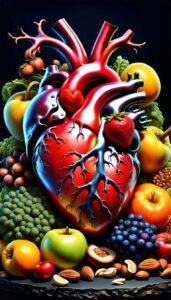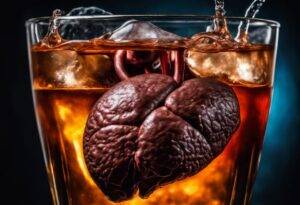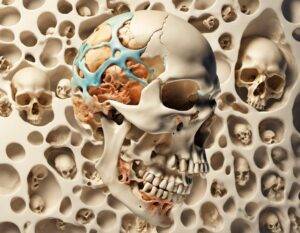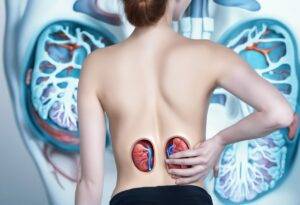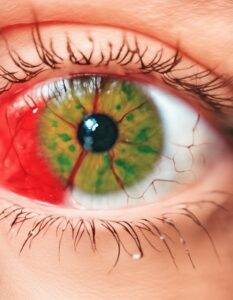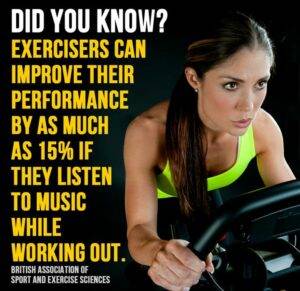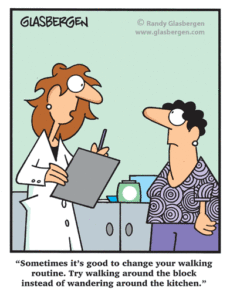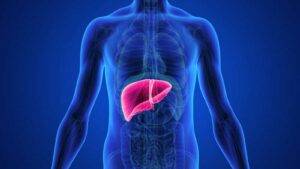Heart disease is a prevalent health concern affecting millions of individuals worldwide. With the potential to cause severe complications, it is crucial to understand its symptoms, risk factors, prevention strategies, and treatment options in order to live a heart-healthy life. In this comprehensive blog post, we will address the most commonly asked questions about heart disease, providing evidence-based information to help you make informed decisions about your heart health.
Demystifying Heart Disease: Answers to Your Burning Questions
1. Symptoms and Impact of Coronary Artery Disease (CAD):
Coronary Artery Disease (CAD) is a common form of heart disease characterized by the narrowing of blood vessels supplying the heart. Topics covered include symptoms, such as chest pain and shortness of breath, and the potential consequences of CAD on overall health.Symptoms of CAD may include chest pain or discomfort (angina), shortness of breath, fatigue, and pain in the arm, neck, jaw, or back. If left untreated, CAD can lead to complications such as heart attack, heart failure, arrhythmias, and even death. It is important to recognize the symptoms and seek medical attention promptly.
2. Reducing the Risk of Heart Disease:
Discover effective lifestyle changes, such as maintaining a balanced diet, engaging in regular exercise, quitting smoking, and managing stress levels, to minimize your risk of developing heart disease. Additionally, explore natural methods to reduce blood pressure and control cholesterol levels.To reduce the risk of heart disease, it is essential to maintain a balanced and healthy diet, including fruits, vegetables, whole grains, and lean proteins. Regular exercise, such as 150 minutes of moderate-intensity aerobic activity per week, can improve cardiovascular health. Quitting smoking and managing stress levels are also important. Blood pressure should be monitored and controlled, and cholesterol levels should be managed through diet, exercise, and medication if necessary.
3. Understanding Heart Attacks and Strokes:
Distinguish between heart attacks and strokes, highlighting their warning signs. Providing this crucial information empowers readers to seek immediate medical attention, potentially saving lives.A heart attack occurs when the blood flow to the heart is blocked, usually due to a blood clot. Common symptoms include chest pain or discomfort, shortness of breath, nausea, and lightheadedness. On the other hand, a stroke occurs when the blood supply to the brain is interrupted, leading to brain damage. Symptoms may include sudden weakness or numbness on one side of the body, difficulty speaking or understanding speech, and severe headache. Both heart attacks and strokes require immediate medical attention.
Just a little heads up: some of the links on this site may be affiliate links, which means if you make a purchase through them, we might get a little kickback. But don’t worry, it won’t cost you a cent extra! Think of it as the universe secretly thanking us for helping you find a great deal. Your support keeps the good vibes flowing.
4. Treatment Options for Heart Failure:
Explore treatment options available for heart failure, ranging from lifestyle modifications to medications and surgical procedures. Emphasize the importance of following medical advice and adopting necessary lifestyle changes to manage this condition effectively. Treatment options for heart failure may include lifestyle modifications, such as reducing salt intake, limiting alcohol consumption, and engaging in regular exercise. Medications, such as ACE inhibitors, beta-blockers, and diuretics, may be prescribed to manage symptoms and improve heart function. In severe cases, surgical procedures like bypass surgery or heart transplant may be necessary. It is important to follow medical advice and make necessary lifestyle changes to effectively manage heart failure.
5. Preventing a Second Heart Attack:
Detail preventive measures after a heart attack, including medication adherence, lifestyle modifications, and regular check-ups, to minimize the risk of experiencing a subsequent heart attack. To prevent a second heart attack, it is crucial to adhere to prescribed medications, such as aspirin, beta-blockers, and statins. Lifestyle modifications, including a heart-healthy diet, regular exercise, quitting smoking, and stress management, are also important. Regular check-ups and communication with healthcare professionals to monitor progress and address any concerns are essential.
6. Diagnostic Tests for Coronary Artery Disease:
Understand the significance of early detection through various diagnostic tests for CAD, such as stress tests, coronary angiography, and cardiac CT scans. Learn how these tests aid in accurate diagnosis and guide subsequent treatment decisions. Diagnostic tests for CAD include stress tests, which evaluate the heart’s response to physical activity, coronary angiography, which provides detailed images of the coronary arteries, and cardiac CT scans, which can detect blockages in the coronary arteries. These tests aid in accurate diagnosis, assess the severity of CAD, and guide treatment decisions.
7. Angioplasty: Role in Treating Coronary Artery Disease:
Explore the procedure and importance of angioplasty, a commonly employed technique for treating CAD. Gain insights into how this minimally invasive procedure helps restore blood flow to the heart. Angioplasty is a procedure used to treat CAD by opening narrowed or blocked coronary arteries. During the procedure, a balloon-tipped catheter is inserted into the blocked artery and inflated to compress the plaque and widen the artery. This helps restore blood flow to the heart. In some cases, a stent may be placed to keep the artery open. Angioplasty is a minimally invasive procedure that can alleviate symptoms and improve blood flow in CAD patients.
8. Significance of Cholesterol in Heart Disease:
Understand the impact of cholesterol on heart health and the body. Discuss the danger of high cholesterol levels and learn ways to manage and reduce cholesterol through lifestyle changes and medications. Cholesterol is a waxy substance in the blood that is necessary for the body’s normal functioning. However, high levels of LDL (bad) cholesterol can lead to the formation of plaque in the arteries, increasing the risk of CAD and heart disease. Managing cholesterol levels through lifestyle changes, such as adopting a heart-healthy diet and exercise routine, and taking prescribed medications like statins, can help lower LDL cholesterol and reduce the risk of heart disease.
9. Lifestyle Changes and Recovery After a Heart Attack:
Highlight the necessary lifestyle adjustments following a heart attack, including a heart-healthy diet, regular exercise, medication adherence, and stress management techniques, to promote successful recovery and prevent future complications. After a heart attack, it is important to make lifestyle changes to aid in recovery and prevent future complications. This includes adopting a heart-healthy diet, low in saturated fats and cholesterol, engaging in regular exercise under the guidance of healthcare professionals, quitting smoking, and managing stress through techniques like meditation and relaxation exercises. Adherence to prescribed medications is crucial, and attending cardiac rehabilitation programs can provide guidance and support throughout the recovery process.
10. The Impact of Stress on Heart Health:
Examine the relationship between stress and heart disease. Learn how various stress management techniques, such as meditation, exercise, and hobbies, can contribute to improved heart health and overall well-being. Chronic stress can contribute to the development and progression of heart disease. Stress can lead to unhealthy coping mechanisms such as overeating, smoking, or excessive alcohol consumption, which increase the risk of heart disease. Managing stress through techniques like regular exercise, meditation, deep breathing exercises, and engaging in hobbies or activities that provide relaxation can promote heart health and overall well-being. It is important to find healthy ways to cope with stress and seek support when needed.
11. Risk Factors and Treatment for Heart Failure:
Identify the risk factors associated with heart failure and outline available treatment options, from lifestyle modifications to medications and surgical interventions. Focus particularly on treatment for atrial fibrillation, a common arrhythmia related to heart failure.Risk factors for heart failure include advanced age, hypertension, diabetes, obesity, smoking, family history of heart disease, and a history of heart attacks. Treatment options for heart failure involve lifestyle modifications such as adopting a heart-healthy diet, exercising regularly, quitting smoking, managing stress, and limiting alcohol consumption. Medications like ACE inhibitors, beta-blockers, diuretics, and angiotensin receptor blockers are prescribed to manage symptoms and improve heart function. Advanced cases may require surgical interventions like heart transplantation or the implantation of a ventricular assist device. Atrial fibrillation, a common arrhythmia related to heart failure, may be treated with medications to control heart rate and rhythm, anticoagulants to prevent blood clots, and in some cases, electrical cardioversion or ablation procedures.
12. Diabetes and Heart Disease:
Discuss the predisposition of individuals with diabetes to heart disease. Explain the link between the two conditions and provide strategies for managing diabetes through lifestyle changes, medication, and close monitoring of blood sugar levels. Individuals with diabetes are more prone to heart disease because high blood sugar levels can damage blood vessels and nerves that control the heart. Managing diabetes through lifestyle changes includes following a balanced diet, regular exercise, and maintaining a healthy weight. Medications like metformin, insulin, and other oral antidiabetic drugs may be prescribed to control blood sugar levels. Close monitoring of blood sugar levels is crucial, and regular check-ups with healthcare providers are recommended.
13. Recovery After Heart Bypass Surgery:
Detail the recovery process following heart bypass surgery, discussing common experiences, recommended lifestyle adjustments, medication adherence, and the importance of follow-up care. Recovery after heart bypass surgery typically involves a hospital stay of 4-6 days. Common experiences during this time include pain or discomfort, fatigue, and difficulty sleeping. Lifestyle adjustments may involve a heart-healthy diet, regular exercise, quitting smoking, and managing stress. Adherence to medications such as blood thinners, beta-blockers, and statins is important. Follow-up care, including regular check-ups and cardiac rehabilitation programs, is crucial for monitoring progress and ensuring optimal recovery.
14. Recognizing Signs of Heart Failure:
Educate readers on recognizing early signs of heart failure, such as fatigue, shortness of breath, and fluid retention, to ensure early diagnosis and timely intervention for a better prognosis. Early signs of heart failure include fatigue, shortness of breath with exertion or at rest, swollen ankles or legs, rapid weight gain, persistent cough or wheezing, and increased urination at night. Recognizing these signs is important for early diagnosis and timely intervention. If experiencing any of these symptoms, individuals should seek medical attention for further evaluation and appropriate management.
Just a little heads up: some of the links on this site may be affiliate links, which means if you make a purchase through them, we might get a little kickback. But don’t worry, it won’t cost you a cent extra! Think of it as the universe secretly thanking us for helping you find a great deal. Your support keeps the good vibes flowing.
15. Understanding Congestive Heart Failure:
Define congestive heart failure, its causes, symptoms, and the available treatment options. Emphasize the importance of adhering to prescribed medications and lifestyle changes to manage symptoms effectively. Congestive heart failure is a condition where the heart cannot efficiently pump blood. It can be caused by conditions such as coronary artery disease, high blood pressure, previous heart attacks, valvular heart disease, or other underlying heart conditions. Symptoms include fatigue, shortness of breath, fluid retention (swelling in ankles, legs, or abdomen), coughing or wheezing, and rapid or irregular heartbeat. Treatment options include lifestyle modifications, medications (such as ACE inhibitors, beta-blockers, and diuretics), and implanted devices (such as pacemakers or defibrillators). Adhering to prescribed medications and lifestyle changes, as well as regular monitoring by healthcare providers, is crucial for effectively managing congestive heart failure.
16. Smoking, Obesity, and Heart Health:
Examine the detrimental effects of smoking and obesity on heart health, stressing the importance of quitting smoking and maintaining a healthy weight to reduce the risk of heart disease. Smoking and obesity have detrimental effects on heart health. Smoking damages blood vessels, increases blood pressure, and reduces oxygen supply to the heart. Obesity contributes to conditions like high blood pressure, high cholesterol, and diabetes, all of which increase the risk of heart disease. Quitting smoking and maintaining a healthy weight through a balanced diet and regular exercise significantly reduce the risk of heart disease.
17. Warning Signs of Stroke:
Provide clear explanations and warning signs of stroke, emphasizing the need for prompt medical attention. Explore ways to prevent strokes, such as managing blood pressure and leading a heart-healthy lifestyle. Warning signs of a stroke include sudden numbness or weakness in the face, arm, or leg (particularly on one side of the body), confusion, trouble speaking or understanding, difficulty walking, dizziness, severe headache with no known cause, and sudden vision changes. Immediate medical attention should be sought if any of these signs are present. Prevention of stroke involves managing blood pressure, controlling diabetes, quitting smoking, maintaining a healthy weight, exercising regularly, and following a heart-healthy diet.
18. Alternative Treatments for Coronary Artery Disease:
Discuss notable alternative treatments for coronary artery disease, such as chelation therapy or certain supplements. While conventional treatments are the gold standard, some individuals may consider exploring alternative options, provided they consult with their healthcare provider. While conventional treatments are the gold standard for coronary artery disease, some individuals may consider exploring alternative options as complementary approaches. Chelation therapy, a procedure involving the administration of a medication called EDTA to remove heavy metals from the blood, and certain supplements like omega-3 fatty acids, coenzyme Q10, and garlic extract have been studied for their potential benefits. However, it is important to consult with a healthcare provider before pursuing these alternative treatments to ensure safety and effectiveness.
19. Exercise and Its Role in Heart Disease Prevention:
Analyze the impact of regular exercise on heart disease prevention. Explain how physical activity improves heart health, lowers blood pressure, and reduces cardiovascular risk factors. Regular exercise plays a significant role in preventing heart disease. Physical activity strengthens the heart muscle, improves blood circulation, lowers blood pressure, reduces cholesterol levels, helps manage weight, and decreases the risk of developing diabetes. Engaging in moderate-intensity exercise for at least 150 minutes per week, such as brisk walking, cycling, swimming, or aerobic exercises, is recommended for promoting heart health.
20. Medications for Heart Disease:
Provide an overview of commonly used medications for treating heart disease, including statins, beta-blockers, and antiplatelet agents. Clarify their role in managing the condition and achieving optimal heart health. Commonly used medications for treating heart disease include statins, which help lower cholesterol levels, beta-blockers, which reduce heart rate and blood pressure, and antiplatelet agents, such as aspirin or clopidogrel, which prevent blood clot formation. Other medications may be prescribed depending on specific conditions or symptoms. These medications play a crucial role in managing heart disease, reducing the risk of complications, and improving overall heart health. It is important to take prescribed medications as directed and to communicate any concerns or side effects with a healthcare provider.
21. Family History and Gender Differences in Heart Disease:
Explore the influence of family history on heart disease risk and its possible implications. Discuss the unique factors that can affect women and their heart health, emphasizing the importance of personalized care. Family history plays a significant role in determining an individual’s risk for developing coronary artery disease (CAD). Having a close relative, such as a parent or sibling, with heart disease increases the likelihood of developing the condition. This is because genetic factors can influence the development of CAD. Individuals with a family history of heart disease should be especially vigilant in managing their cardiovascular health through regular check-ups, a healthy lifestyle, and adherence to medical recommendations.
In addition to family history, gender differences can affect heart health. Women may experience unique risk factors and symptoms related to heart disease. Hormonal factors, such as menopause and hormone replacement therapy, can impact a woman’s risk of developing CAD. Women may also present with atypical symptoms, such as shortness of breath, nausea, fatigue, and jaw or back pain. It is crucial for women to receive personalized care that takes into account their specific risk factors and symptoms.
22. Recommended Diet for Heart Disease Prevention:
Conclude the blog post by providing a recommended heart-healthy diet. Share guidelines for consuming lean proteins, whole grains, fruits, vegetables, and healthy fats. Emphasize the importance of portion control and limiting sodium intake to promote cardiovascular health. A heart-healthy diet is essential for preventing and managing coronary artery disease. Here are some guidelines for a recommended diet:
1. Consume lean proteins: Opt for lean sources of protein like chicken, fish, and legumes. Limit intake of red meats, which are high in saturated fats.
2. Choose whole grains: Include whole grain products such as whole wheat bread, brown rice, and oatmeal in your diet. These are rich in fiber and can help to lower cholesterol levels.
3. Eat plenty of fruits and vegetables: Aim to incorporate a variety of colorful fruits and vegetables into your meals. They are low in calories and high in essential vitamins, minerals, and antioxidants.
4. Include healthy fats: Instead of saturated and trans fats, choose healthier sources of fats like avocados, nuts, seeds, and olive oil. These provide essential fatty acids and can help improve heart health.
5. Practice portion control: Be mindful of portion sizes to maintain a healthy weight. Use smaller plates, measure portion sizes, and avoid oversized portions.
6. Limit sodium intake: Excessive sodium consumption can lead to high blood pressure. Be cautious of processed foods, canned soups, and fast food, as they tend to be high in sodium.
23. What are the warning signs of a stroke?:
The common warning signs indicating a person might be experiencing a stroke include sudden numbness or weakness in the face, arm, or leg (especially on one side of the body), sudden confusion or trouble speaking or understanding speech, sudden trouble seeing in one or both eyes, sudden trouble walking, dizziness, or loss of balance or coordination, and a sudden severe headache with no known cause. It is crucial to recognize the common warning signs of a stroke to seek immediate medical attention. These signs include:
– Sudden numbness or weakness in the face, arm, or leg, especially on one side of the body.
– Sudden confusion or trouble speaking or understanding speech.
– Sudden trouble seeing in one or both eyes.
– Sudden trouble walking, dizziness, or loss of balance or coordination.
– Sudden severe headache with no known cause.
If someone experiences any of these symptoms, it is important to call emergency services right away and get to the hospital for immediate evaluation and treatment.
24. Are there any alternative treatments for coronary artery disease?:
Besides conventional medical approaches, some alternative treatments available for individuals with coronary artery disease include acupuncture, herbal remedies, and mind-body techniques (such as meditation and yoga). However, it is important to note that these alternative treatments should be used as complementary therapies and should not replace conventional medical approaches. In addition to conventional medical approaches, some alternative treatments are available for individuals with coronary artery disease. These include acupuncture, herbal remedies, and mind-body techniques such as meditation and yoga. However, it is important to note that these alternative treatments should be used as complementary therapies and not as replacements for conventional medical approaches. Before considering alternative treatments, individuals should consult with their healthcare provider to ensure they are safe and appropriate for their specific condition.
25. What role does exercise play in heart disease prevention?:
Regular exercise plays a crucial role in preventing heart disease by improving cardiovascular health, managing weight, reducing blood pressure, increasing HDL (good) cholesterol levels, and reducing the risk of developing conditions such as diabetes and obesity, which are risk factors for heart disease. Aim for at least 150 minutes of moderate-intensity aerobic exercise or 75 minutes of vigorous-intensity aerobic exercise per week, along with strength training exercises twice a week. Regular exercise is crucial for preventing heart disease and maintaining heart health. Exercise plays a significant role in improving cardiovascular health, managing weight, reducing blood pressure, increasing HDL (good) cholesterol levels, and reducing the risk of developing conditions such as diabetes and obesity, which are risk factors for heart disease.
The American Heart Association recommends at least 150 minutes of moderate-intensity aerobic exercise or 75 minutes of vigorous-intensity aerobic exercise per week, along with strength training exercises twice a week. It is important to choose activities that you enjoy and can be sustained over time to make exercise a regular part of your lifestyle.
26. How does obesity impact heart health?:
Obesity has a significant impact on an individual’s heart health and increases the risk of developing heart disease. Excess weight puts extra strain on the heart, raises blood pressure, increases cholesterol levels, and promotes inflammation, all of which can contribute to the development of heart disease. Maintaining a healthy weight through a balanced diet and regular exercise is crucial for heart health. Obesity has a significant impact on heart health and increases the risk of developing heart disease. Excess weight puts additional strain on the heart, raises blood pressure, increases cholesterol levels, and promotes inflammation, all of which can contribute to the development of heart disease.
27. What medications are commonly used to treat heart disease?:
Commonly prescribed medications used for treating heart disease include antiplatelet drugs (such as aspirin), beta-blockers, ACE inhibitors, statins, and diuretics. These medications help manage blood pressure, prevent blood clots, reduce cholesterol levels, and improve heart function. Several medications are commonly prescribed for the treatment of heart disease. These include:
– Antiplatelet drugs (such as aspirin): These help prevent blood clots and reduce the risk of heart attack or stroke.
– Beta-blockers: They lower blood pressure and reduce the workload on the heart.
– ACE (angiotensin-converting enzyme) inhibitors: These medications help relax blood vessels, lower blood pressure, and improve heart function.
– Statins: They are used to lower cholesterol levels and reduce the risk of future heart events.
– Diuretics: These medications help eliminate excess fluid from the body and reduce blood pressure.
It is important for individuals with heart disease to work closely with their healthcare provider to determine the most appropriate medications for their specific condition.
28. Does having a family history of heart disease increase my risk?:
Yes, having a family history of heart disease elevates an individual’s risk of developing the condition. Genetic factors can play a role in the development of heart disease, and individuals with a close relative (parent or sibling) who has had heart disease are at a higher risk. However, it is essential to note that having a family history does not guarantee the development of heart disease. Lifestyle factors also play a significant role, and adopting a heart-healthy lifestyle can help mitigate the risk.
29. Can heart disease affect women differently than men?:
Yes, heart disease can exhibit different symptoms and affect women differently compared to men. While men often experience classic symptoms such as chest pain or discomfort, women may have more atypical or “silent” symptoms, such as shortness of breath, nausea or vomiting, jaw or back pain, and fatigue. Women also tend to develop heart disease later in life compared to men, and hormonal factors may impact their risk. Yes, heart disease can exhibit different symptoms and affect women differently compared to men. While men often experience classic symptoms such as chest pain or discomfort (angina), women may have more atypical or “silent” symptoms.
Common symptoms of heart disease in women include:
– Shortness of breath
– Nausea or vomiting
– Jaw or back pain
– Fatigue
Women also tend to develop heart disease later in life compared to men, and hormonal factors, such as menopause and hormone replacement therapy, can impact their risk. It is essential for women to be aware of these differences and seek medical attention if they experience any concerning symptoms.
30. What is the recommended diet for heart disease prevention and management?:
The dietary recommendations and guidelines typically recommended for preventing and managing heart disease include a diet rich in fruits, vegetables, whole grains, lean proteins (such as fish and poultry), and healthy fats (such as olive oil and avocados). It is important to limit saturated and trans fats, sodium, and added sugars. Following a Mediterranean-style diet, which emphasizes plant-based foods and healthy fats, has been shown to be beneficial for heart health. Additionally, reducing portion sizes and practicing mindful eating can also help manage weight and prevent heart disease. The dietary recommendations for preventing and managing heart disease include adopting a heart-healthy diet. Such a diet typically consists of:
– Fruits and vegetables: Aim for a variety of colorful fruits and vegetables, as they are rich in vitamins, minerals, and antioxidants.
– Whole grains: Choose whole grains such as whole wheat, oats, and brown rice, which are rich in fiber and can help lower cholesterol levels.
– Lean proteins: Opt for lean sources of protein such as chicken, fish, legumes, and tofu. Limit intake of red meats, which are often high in saturated fats.
– Healthy fats: Include sources of healthy fats in your diet, such as avocados, nuts, seeds, and olive oil. These can help improve heart health.
– Limit sodium intake: Reduce your consumption of processed foods, fast food, and canned soups, which tend to be high in sodium.
– Control portion sizes: Be mindful of portion sizes to avoid overeating and manage weight.
– Limit added sugars: Minimize the consumption of foods and beverages with added sugars, as they can contribute to weight gain and increase the risk of heart disease.
Following a Mediterranean-style diet, which emphasizes plant-based foods, healthy fats, and moderate consumption of lean proteins, has been shown to be beneficial for heart health.
While I do cite reputable sources, I am not a medical professional. Please use professional medical advice when making any health-related decisions.
Conclusion:
Reducing the risk of heart disease involves understanding and managing various factors such as family history, and gender-specific risks, adopting a heart-healthy diet, recognizing warning signs of stroke, considering alternative treatments, engaging in regular exercise, maintaining a healthy weight, and following appropriate medical treatments and lifestyle changes. By equipping yourself with knowledge about heart disease, its risk factors, prevention strategies, and available treatments, you can take proactive steps towards maintaining a healthy heart. By adopting positive lifestyle changes, managing risk factors, and seeking the appropriate medical care, you can significantly reduce the impact of heart disease on your life. Remember, early detection, prevention measures, and prompt medical attention are key to ensuring a healthier, longer life. Take control of your heart health today!
coronary artery disease, risk reduction, heart disease prevention, heart attack, stroke, blood pressure, natural remedies, treatment options, heart failure, warning signs, prevention strategies, tests, diagnoses, angioplasty, cholesterol, lifestyle changes, stress, risk factors, atrial fibrillation, high cholesterol, genetics, diabetes, recovery process, bypass surgery, cure, recognizing signs, congestive heart failure, smoking, stroke warning signs, alternative treatments, exercise, obesity, medications, family history, gender differences, recommended diet, prevention and management
Just a little heads up: some of the links on this site may be affiliate links, which means if you make a purchase through them, we might get a little kickback. But don’t worry, it won’t cost you a cent extra! Think of it as the universe secretly thanking us for helping you find a great deal. Your support keeps the good vibes flowing.
References:
1. What are the symptoms of coronary artery disease?
– American Heart Association: Symptoms of Coronary Artery Disease (https://www.heart.org/en/health-topics/consumer-healthcare/what-is-cardiovascular-disease/coronary-artery-disease/symptoms-of-coronary-artery-disease)
– Mayo Clinic: Coronary artery disease symptoms and causes (https://www.mayoclinic.org/diseases-conditions/coronary-artery-disease/symptoms-causes/syc-20350613)
– Cleveland Clinic: Coronary Artery Disease Symptoms (https://my.clevelandclinic.org/health/diseases/16898-coronary-artery-disease-symptoms)
2. How can I reduce my risk of developing heart disease?
– American Heart Association: Prevention and Treatment of High Blood Pressure (https://www.heart.org/en/health-topics/high-blood-pressure/prevention-and-treatment-of-high-blood-pressure)
– Mayo Clinic: Heart disease prevention (https://www.mayoclinic.org/diseases-conditions/heart-disease/in-depth/heart-disease-prevention/art-20046502)
– Centers for Disease Control and Prevention: Preventing Heart Disease (https://www.cdc.gov/heartdisease/prevention.htm)
3. What is the difference between a heart attack and a stroke?
– National Institute of Neurological Disorders and Stroke: Stroke vs. Heart Attack (https://www.ninds.nih.gov/Disorders/Patient-Caregiver-Education/Life-After-Stroke/Prevention-Other-Cerebrovascular-Conditions/Heart-Attack-or-Stroke-How-Tell-the-Difference)
– American Stroke Association: Heart Attack vs Stroke (https://www.strokeassociation.org/en/about-stroke/effects-of-stroke/heart-attack-vs-stroke)
– American Heart Association: Understand Your Risks to Prevent a Heart Attack or Stroke (https://www.heart.org/en/health-topics/heart-attack/understand-your-risks-to-prevent-a-heart-attack)
4. How can I lower my blood pressure naturally?
– National Institutes of Health: Lifestyle Changes to Treat High Blood Pressure (https://www.nhlbi.nih.gov/health-topics/lifestyle-changes-to-treat-high-blood-pressure)
– American Heart Association: Lowering Blood Pressure (https://www.heart.org/en/health-topics/high-blood-pressure/lower-blood-pressure)
– Mayo Clinic: 10 ways to control high blood pressure without medication (https://www.mayoclinic.org/diseases-conditions/high-blood-pressure/in-depth/high-blood-pressure/art-20046974)
5. What are the treatment options for heart failure?
– American Heart Association: Heart Failure Treatment (https://www.heart.org/en/health-topics/heart-failure/treatment-options-for-heart-failure)
– Mayo Clinic: Heart failure – Treatment (https://www.mayoclinic.org/diseases-conditions/heart-failure/diagnosis-treatment/drc-20373184)
– National Heart, Lung, and Blood Institute: Treatments for Heart Failure (https://www.nhlbi.nih.gov/health-topics/heart-failure/treatment)
6. What are some warning signs of a heart attack?
– American Heart Association: Heart Attack Symptoms in Women (https://www.heart.org/en/health-topics/heart-attack/warning-signs-of-a-heart-attack/heart-attack-symptoms-in-women)
– Mayo Clinic: Heart attack symptoms: Know what’s a medical emergency (https://www.mayoclinic.org/diseases-conditions/heart-attack/expert-answers/heart-attack-symptoms/faq-20057794)
– Cleveland Clinic: Heart Attack Symptoms (https://my.clevelandclinic.org/health/diseases/16898-heart-attack-symptoms)
7. How can I prevent a second heart attack?
– American Heart Association: Life After a Heart Attack (https://www.heart.org/en/health-topics/heart-attack/life-after-a-heart-attack)
– Mayo Clinic: Preventing a Second Heart Attack (https://www.mayoclinic.org/diseases-conditions/heart-attack/in-depth/heart-attack/art-20046717)
– National Institutes of Health: Preventing a Second Heart Attack (https://www.nhlbi.nih.gov/health-topics/heart-attack/prevention)
8. What types of tests are used to diagnose coronary artery disease?
– American Heart Association: Tests for Coronary Artery Disease (https://www.heart.org/en/health-topics/consumer-healthcare/what-is-cardiovascular-disease/tests-for-coronary-artery-disease)
– Mayo Clinic: Coronary angiography (https://www.mayoclinic.org/tests-procedures/coronary-angiography/about/pac-20384907)
– National Heart, Lung, and Blood Institute: Diagnosis of Coronary Heart Disease (https://www.nhlbi.nih.gov/health-topics/coronary-heart-disease)
9. What is angioplasty and how does it treat coronary artery disease?
– American Heart Association: Angioplasty (https://www.heart.org/en/health-topics/heart-attack/treatment-of-a-heart-attack/angioplasty)
– Mayo Clinic: Angioplasty and stent placement (https://www.mayoclinic.org/tests-procedures/angioplasty/about/pac-20384761)
– Medscape: Percutaneous Coronary Intervention (Angioplasty) (https://emedicine.medscape.com/article/161475-overview)
10. What is the role of cholesterol in heart disease?
– American Heart Association: Cholesterol and Heart Disease (https://www.heart.org/en/health-topics/cholesterol/about-cholesterol)
– Mayo Clinic: Cholesterol and heart disease (https://www.mayoclinic.org/diseases-conditions/high-blood-cholesterol/symptoms-causes/syc-20350800)
– National Heart, Lung, and Blood Institute: How Cholesterol Causes Heart Disease (https://www.nhlbi.nih.gov/health-topics/how-cholesterol-causes-heart-disease)
11. What lifestyle changes should I make after a heart attack?
– American Heart Association: Recovery After Heart Attack (https://www.heart.org/en/health-topics/heart-attack/recovery-after-heart-attack)
– Mayo Clinic: Heart attack recovery: What to expect during the first year (https://www.mayoclinic.org/diseases-conditions/heart-attack/in-depth/heart-attack-recovery/art-20047967)
– National Institutes of Health: Life After a Heart Attack (https://www.nhlbi.nih.gov/health-topics/heart-attack/life-after-a-heart-attack)
12. Can stress cause heart disease?
– Mayo Clinic: Chronic stress puts your health at risk (https://www.mayoclinic.org/healthy-lifestyle/stress-management/in-depth/stress/art-20046037)
– American Heart Association: Stress and Heart Health (https://www.heart.org/en/healthy-living/healthy-lifestyle/stress-management/stress-and-heart-health)
– Harvard Health Publishing: Stress and Your Heart (https://www.health.harvard.edu/heart-health/stress-and-your-heart)
13. What are the risk factors for heart failure?
– American Heart Association: Conditions, Treatments, and Procedures for Heart Failure (https://www.heart.org/en/health-topics/heart-failure/what-is-heart-failure)
– Mayo Clinic: Heart failure – Risk Factors (https://www.mayoclinic.org/diseases-conditions/heart-failure/symptoms-causes/syc-20373142)
– National Heart, Lung, and Blood Institute: What Are the Risk Factors for Heart Failure? (https://www.nhlbi.nih.gov/health-topics/heart-failure/what-are-risk-factors-heart-failure)
14. What is atrial fibrillation and how is it treated?
– American Heart Association: Atrial Fibrillation (https://www.heart.org/en/health-topics/atrial-fibrillation)
– Mayo Clinic: Atrial fibrillation (https://www.mayoclinic.org/diseases-conditions/atrial-fibrillation/symptoms-causes/syc-20350624)
– National Institute of Diabetes and Digestive and Kidney Diseases: Atrial Fibrillation (https://www.niddk.nih.gov/health-information/heart-disease-atrial-fibrillation)
15. How does high cholesterol contribute to heart disease?
– American Heart Association: How Does Cholesterol Affect the Heart? (https://www.heart.org/en/health-topics/cholesterol/about-cholesterol/how-does-cholesterol-affect-the-heart)
– Mayo Clinic: High cholesterol levels: What can cause it? (https://www.mayoclinic.org/diseases-conditions/high-blood-cholesterol/symptoms-causes/syc-20350800)
– Cleveland Clinic: How Your Cholesterol Levels Affect Your Heart (https://my.clevelandclinic.org/health/articles/17284-heart-cholesterol-lower-your-risk)
16. Can heart disease be genetic?
– American Heart Association: Genetics and Heart Disease (https://www.heart.org/en/health-topics/womens-health/understanding-the-stages-of-menopause/genetics-and-heart-disease)
– Mayo Clinic: Heart disease risk: Are you lucky or unlucky with genetics? (https://www.mayoclinic.org/diseases-conditions/heart-disease/expert-answers/heart-disease-risk/faq-20058475)
– National Human Genome Research Institute: Is heart disease inherited? (https://www.genome.gov/Genetic-Disorders/Is-Heart-Disease-Inherited)
17. What is the link between diabetes and heart disease?
– American Heart Association: Diabetes and Cardiovascular Disease (https://www.heart.org/en/health-topics/diabetes/why-diabetes-matters/cardiovascular-disease–diabetes)
– Mayo Clinic: Diabetes and Cardiovascular Disease (https://www.mayoclinic.org/diseases-conditions/diabetes/in-depth/diabetes/art-20044394)
– National Institute of Diabetes and Digestive and Kidney Diseases: Cardiovascular Disease & Diabetes (https://www.niddk.nih.gov/health-information/diabetes/overview/preventing-problems/heart-disease-stroke)
18. What is the recovery process like after heart bypass surgery?
– American Heart Association: What to Expect After Heart Surgery (https://www.heart.org/en/health-topics/heart-bypass-surgery/recovery-process)
– Mayo Clinic: Coronary artery bypass grafting (CABG) – Recovery (https://www.mayoclinic.org/tests-procedures/coronary-bypass-surgery/in-depth/coronary-bypass-surgery-recovery/art-20045963)
– Johns Hopkins Medicine: Coronary Artery Bypass Graft (CABG) Surgery: Recovery (https://www.hopkinsmedicine.org/health/treatment-tests-and-therapies/coronary-artery-bypass-graft-cabg-surgery-recovery)
19. Can heart disease be cured?
– American Heart Association: Can heart disease be cured? (https://www.heart.org/en/health-topics/heart-attack/treatment-of-a-heart-attack/can-heart-disease-be-cured)
– Mayo Clinic: Heart disease – Treatments (https://www.mayoclinic.org/diseases-conditions/heart-disease/diagnosis-treatment/drc-20353124)
– National Heart, Lung, and Blood Institute: How Is Heart Disease Treated? (https://www.nhlbi.nih.gov/health-topics/heart-disease-treatment)
20. How can I recognize the signs of heart failure?
– American Heart Association: Heart Failure Signs and Symptoms (https://www.heart.org/en/health-topics/heart-failure/warning-signs-of-heart-failure)
– Mayo Clinic: Heart failure – Symptoms (https://www.mayoclinic.org/diseases-conditions/heart-failure/symptoms-causes/syc-20373142)
– Cleveland Clinic: Heart Failure Symptoms (https://my.clevelandclinic.org/health/diseases/17069-heart-failure-symptoms)
21. What is congestive heart failure and how is it treated?
– American Heart Association: What Is Heart Failure? (https://www.heart.org/-/media/files/health-topics/heart-failure/causes-heart-failure-ucm_477594.pdf)
– Mayo Clinic: Heart failure – Diagnosis and treatment (https://www.mayoclinic.org/diseases-conditions/heart-failure/diagnosis-treatment/drc-20373184)
– National Heart, Lung, and Blood Institute: What Is Heart Failure? (https://www.nhlbi.nih.gov/health-topics/heart-failure)
22. How does smoking affect heart health?
– American Heart Association: Smoking, High Blood Pressure & Heart Disease (https://www.heart.org/en/health-topics/high-blood-pressure/changes-you-can-make-to-manage-high-blood-pressure/smoking-high-blood-pressure-heart-disease)
– Mayo Clinic: Heart disease and smoking (https://www.mayoclinic.org/diseases-conditions/heart-disease/in-depth/smoking/art-20045982)
– Centers for Disease Control and Prevention: Smoking and Heart Disease (https://www.cdc.gov/tobacco/campaign/tips/diseases/heart-disease.html)
23. What are the warning signs of a stroke?
– American Stroke Association: https://www.stroke.org/en/about-stroke/signs-and-symptoms-of-stroke
– National Stroke Association: https://www.stroke.org/understand-stroke/recognizing-stroke/signs-and-symptoms-of-stroke
– Mayo Clinic: https://www.mayoclinic.org/diseases-conditions/stroke/symptoms-causes/syc-20350113
– Stroke Journal: “Signs and Symptoms of Stroke” – https://doi.org/10.1161/STROKEAHA.116.014308
24. Are there any alternative treatments for coronary artery disease?
– American Heart Association: https://www.heart.org/en/health-topics/consumer-healthcare/alternative-treatments-for-heart-disease
– Harvard Health Publishing: https://www.health.harvard.edu/newsletter_article/Alternative_treatments_for_coronary_artery_disease
– Journal of Alternative and Complementary Medicine: “Alternative Treatment Strategies in Coronary Artery Disease” – https://doi.org/10.1089/acm.2011.0845
– National Center for Complementary and Integrative Health: https://www.nccih.nih.gov/health/providers/digest/alternative-therapies-heart-disease
25. What role does exercise play in heart disease prevention?
– American Heart Association: https://www.heart.org/en/healthy-living/fitness/fitness-basics/aha-recs-for-physical-activity-in-adults
– Mayo Clinic: https://www.mayoclinic.org/diseases-conditions/heart-disease/in-depth/heart-disease-prevention/art-20046502
– British Journal of Sports Medicine: “Exercise: The Miracle Cure and the Role of the Doctor in Promoting It” – https://doi.org/10.1136/bjsports-2011-090328
– Centers for Disease Control and Prevention: https://www.cdc.gov/physicalactivity/basics/index.htm
26. How does obesity impact heart health?
– American Heart Association: https://www.heart.org/en/healthy-living/healthy-eating/losing-weight/obesity-information
– National Heart, Lung, and Blood Institute: https://www.nhlbi.nih.gov/health-topics/overweight-and-obesity
– The New England Journal of Medicine: “Obesity and Cardiovascular Disease” – https://doi.org/10.1056/NEJMoa035700
– World Health Organization: https://www.who.int/health-topics/obesity#tab=tab_1
27. What medications are commonly used to treat heart disease?
– American College of Cardiology: https://www.acc.org/latest-in-cardiology/articles/2019/01/28/14/45/drug-therapy-for-chronic-coronary-artery-disease
– American Heart Association: https://www.heart.org/en/health-topics/heart-attack/treatment-of-a-heart-attack/medications-used-to-treat-heart-attacks
– Journal of the American College of Cardiology: “ACCF Secondary Prevention and Risk Reduction Therapy for Patients with Coronary and Other Atherosclerotic Vascular Disease” – https://doi.org/10.1016/j.jacc.2011.07.001
– U.S. Food and Drug Administration: https://www.fda.gov/drugs/understanding-generic-drugs/generic-drug-facts
28. Does having a family history of heart disease increase my risk?
– Mayo Clinic: https://www.mayoclinic.org/diseases-conditions/heart-disease/in-depth/heart-disease/art-20046167
– American Heart Association: https://www.heart.org/en/health-topics/consumer-healthcare/what-is-cardiovascular-disease/family-history-and-heart-disease-stroke
– European Heart Journal: “Family History and the Risk of Atherosclerosis in Middle-Aged Men” – https://doi.org/10.1093/oxfordjournals.eurheartj.a060867
– National Heart, Lung, and Blood Institute: https://www.nhlbi.nih.gov/health-topics/education-and-awareness/heart-truth/family-history-heart-disease
29. Can heart disease affect women differently than men?
– Women’s Heart Foundation: http://www.womensheartfoundation.org/content/heartdisease/differences_between_men_women.asp
– American Heart Association: https://www.heart.org/en/health-topics/heart-disease-in-women
– Journal of the American College of Cardiology: “Sex Differences in Cardiovascular Disease and Hypertension: From Bench to Bedside” – https://doi.org/10.1016/j.jacc.2018.08.2162
– National Institute of Diabetes and Digestive and Kidney Diseases: https://www.niddk.nih.gov/health-information/womens-health/heart-disease-women
30. What is the recommended diet for heart disease prevention and management?
– American Heart Association: https://www.heart.org/en/healthy-living/healthy-eating/eat-smart/nutrition-basics/aha-diet-and-lifestyle-recommendations
– Mayo Clinic: https://www.mayoclinic.org/diseases-conditions/heart-disease/in-depth/heart-healthy-diet/art-20047702
– Journal of the American College of Cardiology: “2013 AHA/ACC Guideline on Lifestyle Management to Reduce Cardiovascular Risk” – https://doi.org/10.1016/j.jacc.2013.11.003
– Dietary Guidelines for Americans: https://www.dietaryguidelines.gov/

Just a little heads up: some of the links on this site may be affiliate links, which means if you make a purchase through them, we might get a little kickback. But don’t worry, it won’t cost you a cent extra! Think of it as the universe secretly thanking us for helping you find a great deal. Your support keeps the good vibes flowing.







